Entertainment
98 Degrees on New Music, ’90s Style and Being a ‘Blue-Collar Boy Band’ on September 13, 2023 at 12:00 pm Us Weekly
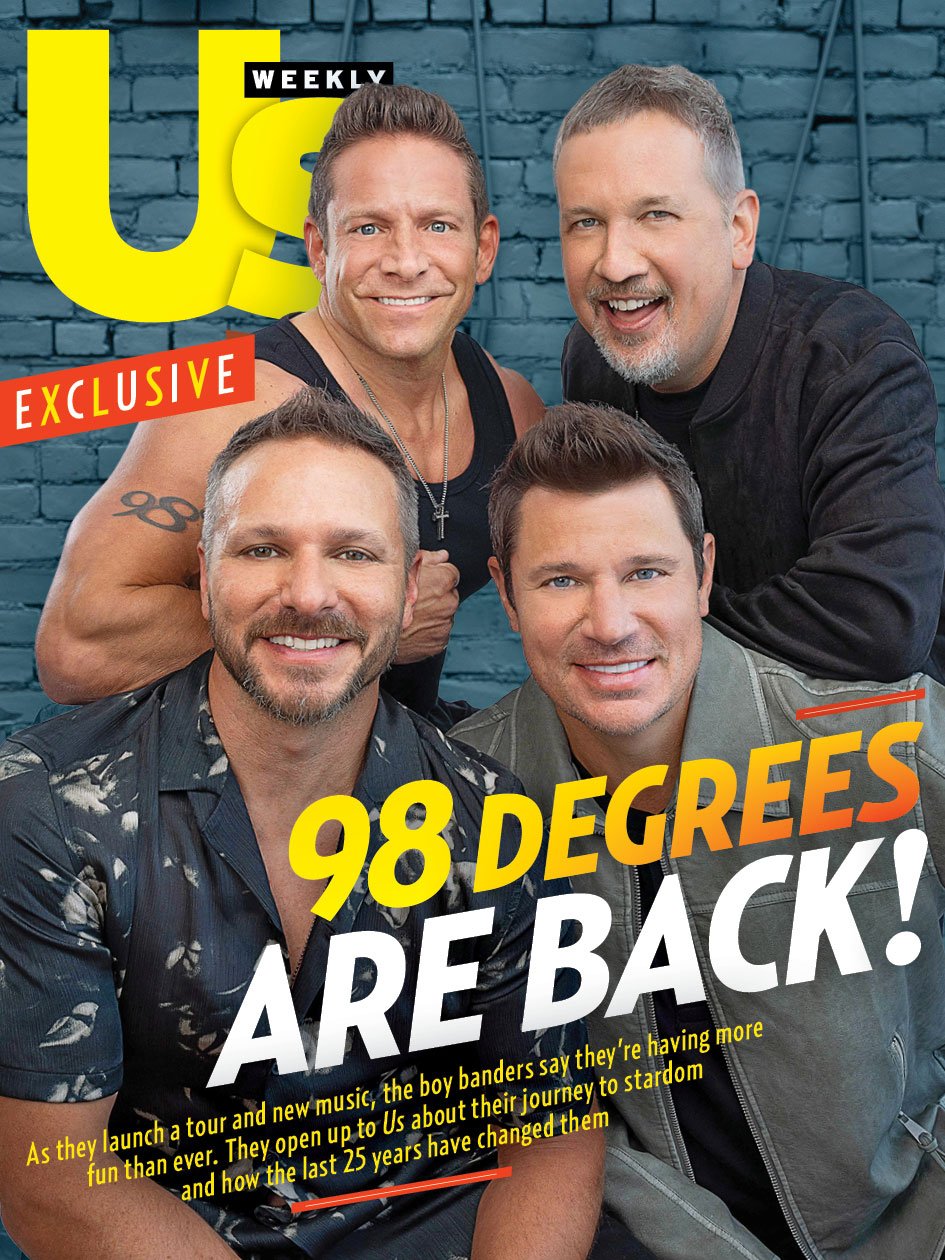
In their heyday, 98 Degrees sold nearly 15 million records, had four top 10 singles and regularly graced the covers of teen magazines alongside the likes of ’NSync and the Backstreet Boys. Despite their outsize fame, Ohio natives Drew and Nick Lachey, Jeff Timmons and Justin Jeffre say they never took success for granted — or stopped hustling. “We call ourselves the blue-collar boy band,” shares Drew. Adds Nick, “Our mindset was always, ‘You might out-dance us, you might out-sing us, but you sure as hell won’t out-work us.’ We got discovered the old-school way, singing for money and food. I’m very proud of how we came up.”
More than two decades later, Drew, 47, Nick, 49, Jeff, 50, and Justin, also 50, are still grinding. Now managed by Johnny Wright of Wright Entertainment Group, they’re working on new music, embarking on a 25th Anniversary Tour and, they tell Us exclusively, rerecording their masters. But today, they’re better able to enjoy the fruits of their labor. “We’re more relaxed,” says Jeff, the band’s founding member. “Everything is more fun.” The guys sat down with Us at the Hotel Covington in Covington, Kentucky, to talk about their early days, returning to the studio and their unbreakable bond.
It’s been 25 years since you guys broke out onto the scene. How exciting is that?
DREW It’s one of these moments where you have to look back. It’s like, “Has it really been that long?” In some ways, it seems like just yesterday that we got together.
How did you initially form the band?
JEFF We started it ourselves. You didn’t have YouTube or American Idol back then. I went to L.A. with some other guys, and they dropped out. Then I was introduced to Nick. When I heard his voice, I was like, “I’ve got to get this guy out here.” I didn’t even know what he looked like…
DREW Otherwise he never would’ve called him!
JEFF I tricked him into coming out to L.A. I lied and said I had a lot of stuff going on even though I had nothing. He brought Justin and Drew with him, and that’s how we got started.
“We never really thought of ourselves as a boy band,” says Nick. “We just got swept up in the current.” John Chapple/MEGA
Did you instantly know that you had something special?
DREW We had something different. We pride ourselves on our vocals, and we’d rehearse nonstop, just a capella and harmony. It didn’t come without a lot of effort and hard work.
NICK There are a lot of great singers out there, but it doesn’t automatically lend itself to harmonizing. So I think when people heard our harmonies, it was like, “Wow, OK.” It set us apart from other bands that were out trying to do the same thing.
How did you decide on the name 98 Degrees?
DREW We voted on it. We wanted something that represented the mood and tone.
Can you share some band names that didn’t make the cut?
JUSTIN There’s a long list. Spontaneous Combustion was a personal favorite.
NICK I still stand by Inertia. What did we start out as?
JEFF It was Just Us. First Four was another one.
DREW Which was terrible. [There was also] Next Issue.
You had your first hit with “Invisible Man” in 1997. Did it feel like success came quickly?
JEFF It felt like it took forever. We got signed in ‘95 and recorded all of ’95 and ’96. We came out in ’97, but we weren’t really marketed. We weren’t on MTV. Our label was Motown, and they didn’t want to put our pictures on anything — they wanted to keep this mystique that we were an R&B group. It took another album and TRL to come out, and then that exposure happened in ’98 and ’99.
JUSTIN Once you’re signed, you realize, “Oh, that doesn’t mean you made it.” It’s still a lot of work ahead.
What was the moment when you felt like you’d finally made it?
NICK We were in Asia touring, and I vividly remember I was in the hallway of our hotel, and Jeff came out and said, “‘Because of You’ just went Top 10.”
DREW Then you’re like, “Alright, are we going to be a one-hit wonder?” So you have to continue grinding and promoting.
NICK We didn’t have the easiest road. We weren’t put together by some magical guy putting pieces in.
“We felt pressure amongst each other just to make it,” says Jeff. “We were pretty hard on each other.” John Chapple/MEGA
There were a lot of boy bands vying to be No. 1. Did you feel any rivalry with them?
JEFF We thought we were more of an R&B vocal group. Not to disparage those bands — we love them, we were friends with all of them — but we thought we were different. Once the media started saying, “Well, you’re like Backstreet Boys and ’N Sync,” then we were like, “Oh, do we need to start dancing more?”
NICK It was a blessing and a curse. There was so much momentum behind the boy band craze, and it was nice to get caught up in that, but it also caused pressure.
To achieve a certain level of success?
DREW There was this completely unattainable bar that was set. People don’t come out and sell 2 million records in the first week — that’s an anomaly.
JEFF There was an article about how our next record was about to come out after Britney [Spears] and Backstreet Boys and ’N Sync consecutively broke records, and it said 98 Degrees is set to do it next. Sadly, we only sold 536,000 records in the first week, and it was a big disappointment.
DREW At this point, we have a better perspective on it all. We enjoy the moment more. We put out projects we’re happy with, and whatever happens with them, happens.
Which song are you most proud of?
NICK “Invisible Man” will always have a special place in my heart. It brings back memories of calling the radio station as you’re driving your motorhome down the highway, requesting your own song.
JEFF They’d call you out. “Is this 98 Degrees?” I hung up the phone immediately. “Because of You” is also a good one. Once that took off, we were everywhere.
What was that like — being thrust into the spotlight?
DREW It was awesome but also overwhelming. I kicked a hole in a wall at one venue because I was so frustrated. I had to pay for the repairs!
Did you all keep each other in check?
NICK You become a brotherhood in all the best ways — and sometimes not the best ways. You lean on each other. To have my own brother in the band was very cool for me — he might say it wasn’t for him [laughs] — but it’s fun to go through it together. Getting chased out of a mall in the Philippines — if you were by yourself, it wouldn’t be nearly as much fun.
Clockwise: Nick Lachey, Drew Lachey, Justin Jeffre, Jeff Timmons John Chapple/MEGA (4)
Any major fights through the years?
DREW [Most] of our disagreements were about which song should be a single or which deal to sign. It wasn’t like, “Oh, you stole money from me.”
NICK There was the Kinder egg incident.
JEFF We were in Germany. I was bored. At every stop, I’d get Kinder eggs — these chocolate eggs with a prize in them. I was opening them and playing with the prizes, but not eating the chocolate. It was super-annoying to the guys — chocolate and wrappers everywhere. They kept stepping on them. They wanted to kill me.
NICK If anything, we’re guilty of being too nice to each other. We probably could’ve used a few more air-the-dirty-laundry fights.
What led to your 2002 hiatus?
JUSTIN We’d just been on the road for so long. We were ready to have more of our own lives outside of the group.
What brought you back together?
DREW We had an opportunity to go back out on the road with New Kids on the Block and Boyz II Men. That was the nudge we needed.
Do you guys ever watch your old music videos?
DREW I went back before this new run of shows. There were moments when I was like, “Oh, my God, I forgot that happened!” We have kids who are old enough to understand it. They’re like, “What was that?” Well, kids, this is a VCR with a VHS tape. [Laughs.] It’s fun to walk down memory lane.
Any regrettable fashion moments?
NICK So many to choose from. It was bad skin, bad outfits, a lot of bad hair. It was just a lot of bad choices.
Do your kids listen to your music?
DREW They don’t listen to it at all. For the most part, It’s other people that I work with who are of that age that look up the videos on YouTube and think it’s fun. My kids are just like, “Oh my God, how many concerts do we have to sit through?”
NICK My kids hate when I sing.
JEFF My kids like it a bit, but they’re over it — they’ve been to too many concerts. They like Little Uzi Vert or whatever.
“It ranks up there as one of our worst fashion moments,” Drew says about their looks at the 1998 Mulan premiere. Frank Trapper/Corbis via Getty Images
Justin, are you still living the bachelor life?
JUSTIN My girlfriend has a son, so it feels a bit like there’s a fatherly role — but fortunately, it’s more like I get to be the cool dad.
How’s it being back on the road?
DREW We have a different take on touring now. It’s about [figuring out] what amount of time we feel comfortable being away and how we can route the tour so we can bring our families.
Who forgets the lyrics most when you’re performing?
DREW Nick. In his defense, he has the most lyrics to sing!
NICK But I’ll always sing something! I’ll improvise. It may not be the actual lyric, and our fans will call me out, but it’s proof we’re singing live.
How do your wives feel about you being on tour?
DREW They’re like, “Go, bye!” [Laughs.] They’re supportive. There are moments our families like to be a part of, and those are the moments you really hold on to.
We’ve all grown and evolved and changed and challenged ourselves,” says Drew. “So we’re bringing new skill sets into the group now.” John Chapple/MEGA
Tell Us about your new music.
JEFF We’ve tried a few things that might not have been our lane. And you see these different things, and the evolution of music. The new music has new sounds in it, but I think the inspiration is our old stuff.
DREW Yeah, we sing love songs. Ultimately, that’s what we do. That’s what we’re most comfortable with, and that’s what we’re best doing.
JEFF My wife is a boy band fan now. Sadly she’s more of a New Kids On The Block fan, but that’s a good test market. So I will run songs by her and she’ll say yay or nay.
You’re rerecording songs as well.
JEFF Record companies traditionally do deals where they take percentages of everything. Ours, EX1, is partnering with us and allowing us to own parts of our masters, and we’re re-recording some of our old hits. It’s exciting.
All of you are working on solo projects as well across entertainment and business.
DREW We’re all exploring other opportunities. In the past [being in the band] was all-consuming. We learned that you have to have other things that inspire you and move you outside of just this group. So yeah, we’re all hustling on our own too.
What do you like to do when you’re not working?
DREW I have a side business with my wife. And my son and daughter are a part of that as well.
JEFF Just normal dad stuff. When you do this for so long, that’s kind of our vacation — getting to be with your family and experiencing sports and choir and cheerleading.
NICK My favorite thing to do with my kids is taking them to school. It’s just the things you talk about, the conversations that come up, the laughing, the music.
“So many parents tell us they were happy to have music that they didn’t feel awkward hearing in the car,” shares Justin. John Chapple/MEGA
There’s a rumor that the Super Bowl halftime show will feature a bunch of boy bands — 98 Degrees, Backstreet Boys, Boyz II Men. Would you be up for that?
NICK We’d love for that to happen.
Boy bands are having a resurgence. Why do you think fans keep coming back for more?
DREW I think it’s just going back to a simpler time. The music was fun. The world seemed a bit safer and less divided, and the shows are upbeat and energetic and bring joy to people.
What do you hope your legacy will be?
JEFF Our reputation and our work ethic — as well as the music — those are the key things.
DREW We’ve always tried to treat people well. We went through this industry, and we took our lumps, but we did it with dignity and respect.
JUSTIN Many parents talk about how they were just happy to have music that they didn’t feel awkward hearing in the house and in the car, so I think that we’re proud of that.
You’ve got the new tour, a new label and new music. What else do you hope to accomplish together?
DREW We want to do music and a show we’re proud of and just appreciate the ride.
NICK If we start sucking, we’ll be like, “OK, guys. it’s time to hang it up.” But as long as we still feel like we can have fun with it and be good at it, why stop?
In their heyday, 98 Degrees sold nearly 15 million records, had four top 10 singles and regularly graced the covers of teen magazines alongside the likes of ’NSync and the Backstreet Boys. Despite their outsize fame, Ohio natives Drew and Nick Lachey, Jeff Timmons and Justin Jeffre say they never took success for granted —
Us Weekly Read More
Business & Money
Ghislaine Maxwell Just Told Congress She’ll Talk — If Trump Frees Her

February 9, 2026 — Ghislaine Maxwell tried to bargain with Congress from a prison video call.
Maxwell, the woman convicted of helping Jeffrey Epstein traffic underage girls, appeared virtually before the House Oversight Committee today and refused to answer a single question. She invoked her Fifth Amendment right against self‑incrimination on every substantive topic, including Epstein’s network, his associates, and any powerful figures who moved through his orbit.
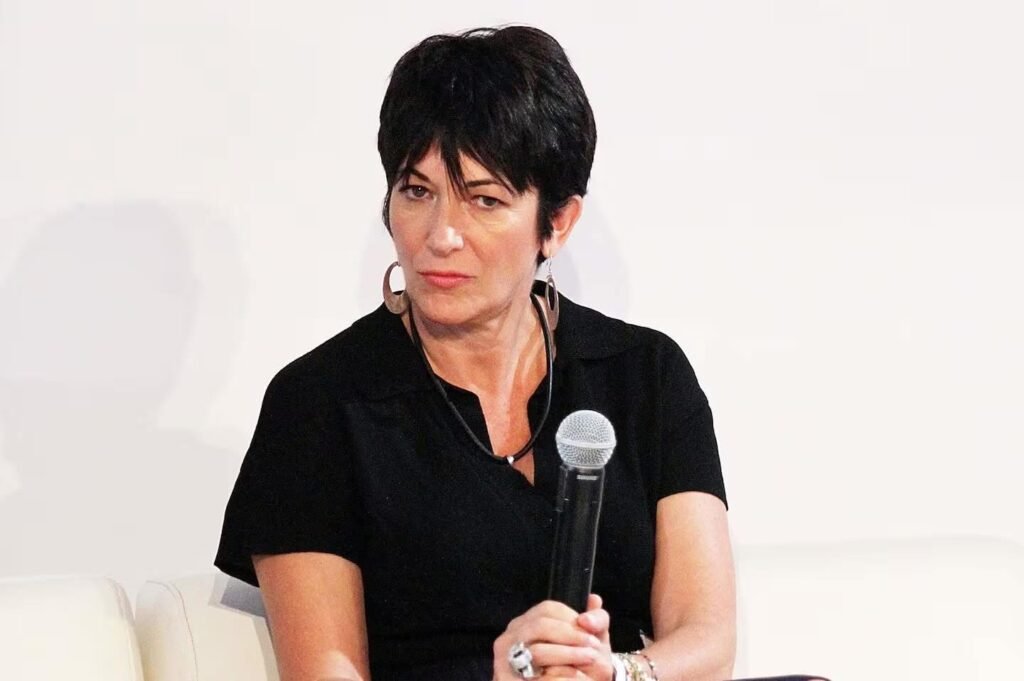
Maxwell is serving a 20‑year federal sentence at a prison camp in Texas after being found guilty in 2021 of sex‑trafficking, conspiracy, and related charges. Her trial exposed a pattern of recruiting and grooming minors for Epstein’s abuse, and her conviction has been upheld on appeal. Despite that legal reality, her appearance today was less about accountability and more about negotiation.
Her lawyer, David Markus, told lawmakers that Maxwell would be willing to “speak fully and honestly” about Epstein and his world — but only if President Donald Trump grants her clemency or a pardon. Markus also claimed she could clear both Trump and Bill Clinton of wrongdoing related to Epstein, a statement critics immediately dismissed as a political play rather than a genuine bid for truth.
Republican Chair James Comer has already said he does not support clemency for Maxwell, and several Democrats accused her of trying to leverage her potential knowledge of powerful people as a way to escape prison. To many survivors’ advocates, the spectacle reinforced the sense that the system is more sympathetic to the powerful than to the victims.
At the same time, Congress is now reviewing roughly 3.5 million pages of Epstein‑related documents that the Justice Department has made available under tight restrictions. Lawmakers must view them on secure computers at the DOJ, with no phones allowed and no copies permitted. Early reports suggest that at least six male individuals, including one high‑ranking foreign official, had their names and images redacted without clear legal justification.
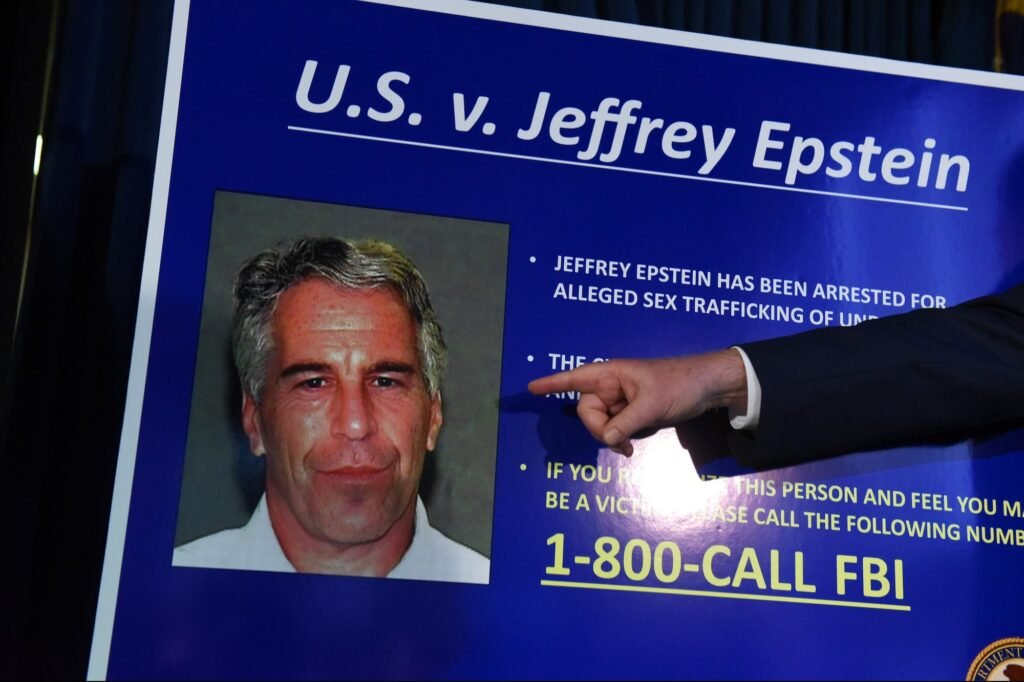
Those unredacted files are supposed to answer questions about who knew what, and when. The problem is that Maxwell is signaling she may never answer any of them — unless she is set free. As of February 9, 2026, the story is still this: a convicted trafficker is using her silence as leverage, Congress is sifting through a wall of redacted files, and the public is still waiting to see who really stood behind Epstein’s power.
Entertainment
What Epstein’s Guest Lists Mean for Working Filmmakers: Who Do You Stand Next To?
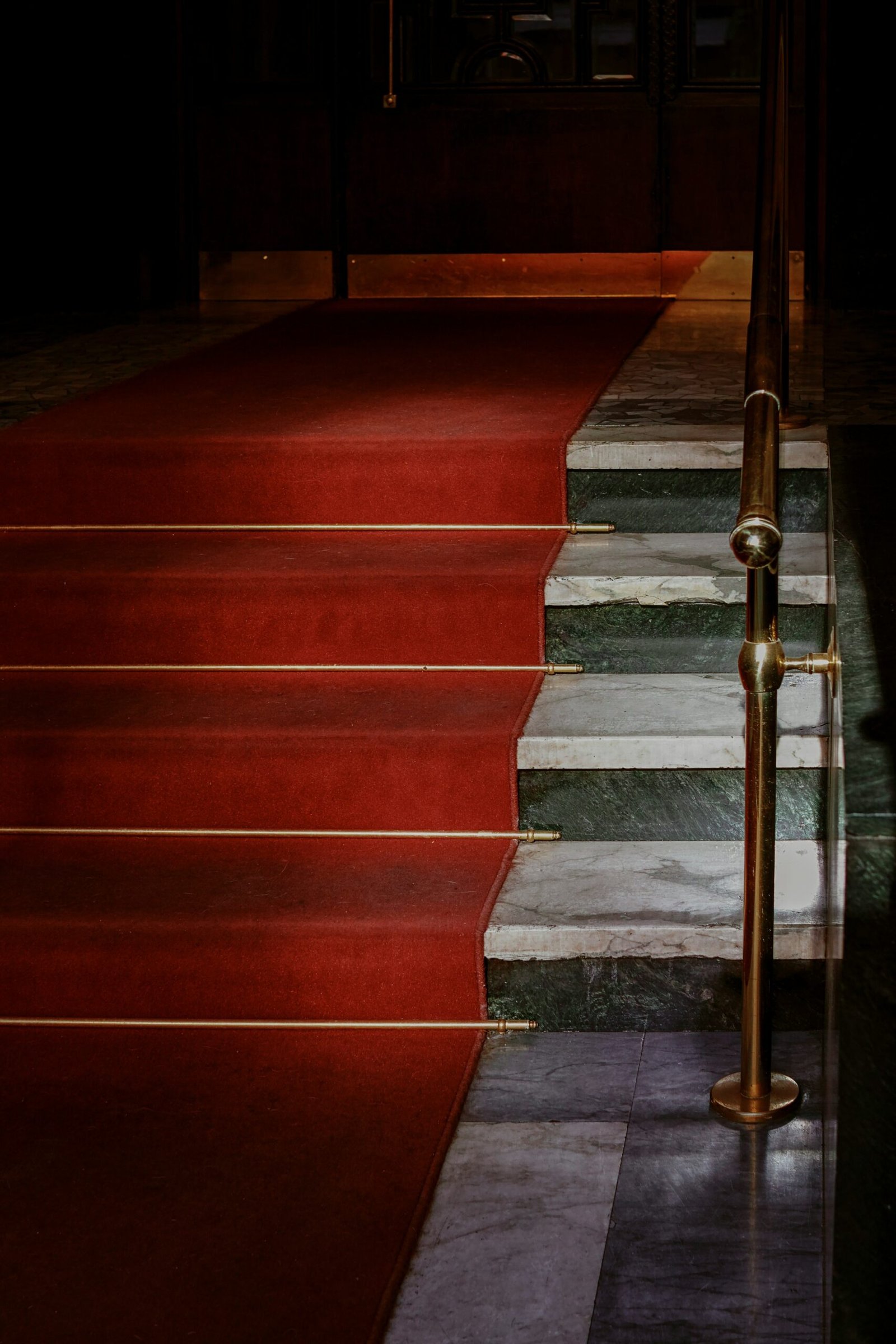
Jeffrey Epstein was a convicted sex offender, but for years after his 2008 conviction, he still moved comfortably through elite social circles that touched media, politics, finance, and film culture. His calendars, contact books, and guest lists show a pattern: powerful people kept accepting his invitations, attending his dinners, and standing beside him, even when they knew exactly who he was.
If you make films, run festivals, or work in development and distribution, this isn’t just a political scandal on the news. It’s a mirror. It forces one uncomfortable question: do you truly know what – and who – you stand for when you say yes to certain rooms, collaborators, and funders?
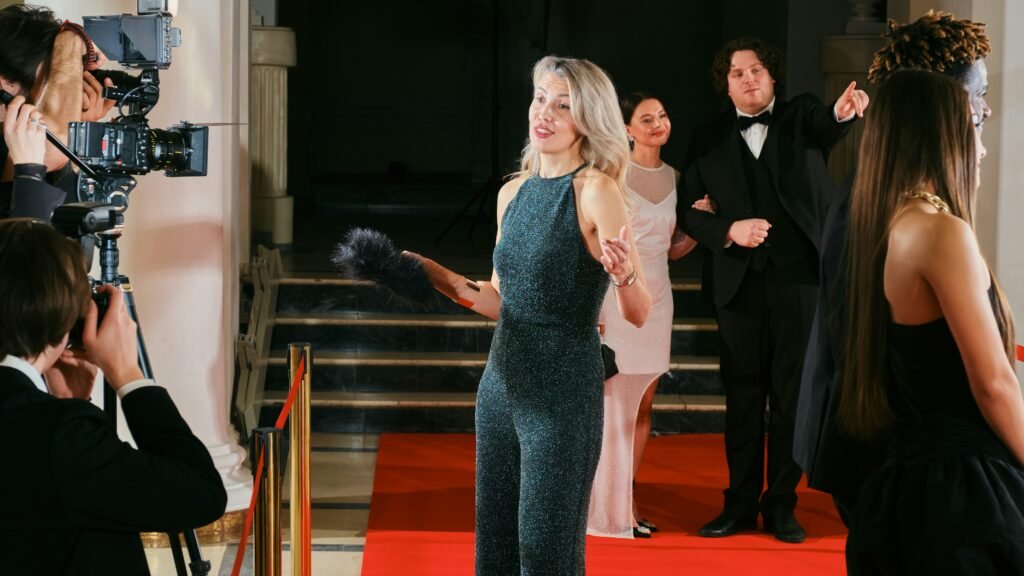
The guest list is a moral document
Epstein didn’t just collect money; he collected people.
His power came from convening others: intimate dinners, salon‑style gatherings, screenings, and trips where being invited signaled that you were “important enough” to be in the room. Prestige guests made him look respectable; he made them feel chosen.
Awards‑season publicists and event planners played a crucial role in that ecosystem. For years, some of the same people who curated high‑status screenings and industry dinners also opened the door for Epstein, placing him in rooms with producers, critics, cultural figures, and politicians. They controlled the lists that determined who got close to money, influence, and decision‑makers.
When those ties became public, companies that had long benefitted from those curated lists cut certain publicists off almost overnight. One day they were trusted architects of taste and access; the next day they were toxic. That whiplash exposes the truth: guest lists were never neutral logistics. They were moral documents disguised as marketing strategy.
If you’re a filmmaker or festival director, the same is true for you. Every invite list, every VIP pass, every “intimate industry mixer” quietly answers a question:
- Who are you willing to legitimize?
- Who gets to bask in the glow of your platform, laurels, and audience?
- Whose history are you willing to overlook because they’re “good for the project”?
You may tell yourself you’re “just trying to get the film seen.” Epstein’s orbit shows that this is exactly how people talk themselves into standing next to predators.

“I barely knew him”: the lie everyone rehearses
After Epstein’s 2019 arrest and death, a familiar chorus started: “I barely knew him.” “We only met once.” “It was purely professional.” In case after case, logs, calendars, and emails told a different story: repeated meetings, trips, dinners, and years of social overlap.
This isn’t unique to Epstein. Our industry does the same thing whenever a powerful director, producer, or executive is finally exposed. Suddenly:
- The person was “always difficult,” but nobody quite remembers when they first heard the stories.
- Collaborators swear they had no idea, despite years of rumors in green rooms, writers’ rooms, and hotel bars.
- Everyone rushes to minimize proximity: one film, one deal, one panel, one party.
Sometimes that’s true. Often it’s a script people have been rehearsing in their heads for years, just in case the day came when they’d need it.
So ask yourself now, before any future scandal:
- If every calendar entry and email around a controversial figure in your orbit were revealed tomorrow, would your values be obvious?
- Would your words and actions show someone wrestling with the ethics and drawing lines, or someone who stood for nothing but opportunity and a good step‑and‑repeat photo?
Your future statement is being written today, in the rooms you choose and the excuses you make.
Power, access, and the cost of staying in the room
People kept going to Epstein’s dinners and accepting his calls after his conviction because he was useful. He made introductions between billionaires and politicians, intellectuals and media figures, donors and institutions. Being in his network could mean access to funding, deals, prestige, and proximity to other powerful guests.
If that dynamic feels uncomfortably familiar, it should. In film and TV, you know this pattern:
- A producer with a reputation for abusive behavior who still gets projects greenlit.
- A financier whose source of money is murky but opens doors.
- A festival VIP everyone whispers about but no one publicly confronts because they bring stars, sponsors, or press.
The unwritten deal is the same: look away, laugh it off, or stay quiet, and in return you get access. What Epstein’s guest lists reveal is how many people accepted that deal until the public cost became unbearable.
The question for you is simple and brutal: how much harm are you willing to tolerate in exchange for access to power? If the answer is “more than I’d admit out loud,” you’re already in the danger zone.
Building your own red lines as a filmmaker
You cannot control every person who ends up in your orbit. But you can refuse to drift. You can decide in advance what you will and will not normalize. That means building your own red lines before there’s a headline.
Some practical commitments:
- Write down your “no‑platform” criteria
Don’t wait until a scandal explodes to decide what’s unacceptable. Define the patterns you will not align with:- Repeat, credible allegations of abuse or harassment.
- Past convictions for sexual exploitation or violence.
- Documented histories of exploiting young or vulnerable people in professional settings.
This doesn’t mean trial‑by‑rumor. It means acknowledging there are lines you simply will not cross, no matter how good the deal looks.
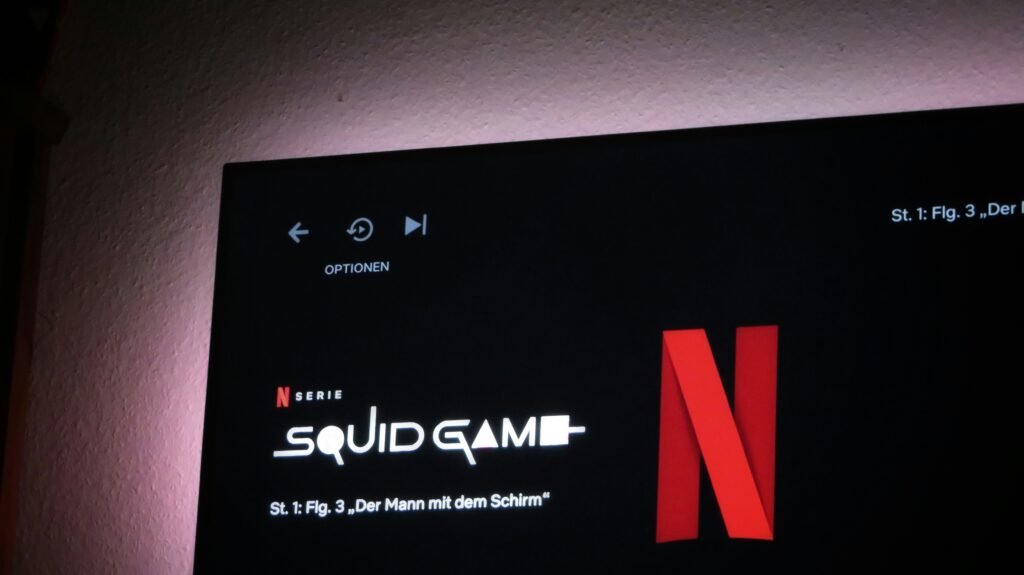
- Interrogate the rooms you’re invited into
Before you say yes to that exclusive dinner, private screening, or “small circle of VIPs,” ask:- Who is hosting, and what are they known for?
- Who else will be there, and what’s their pattern of behavior?
- Is this room built on genuine artistic community, or on quiet complicity around someone with power and a bad history?
When you feel that knot in your stomach, treat it as information, not an inconvenience.
- Bake ethics into your company or festival policy
If you run a production company, collective, or festival, put your values in writing:- How do you respond to credible allegations against a guest, juror, funder, or staff member?
- What is your process for reviewing partnerships and sponsorships?
- Under what conditions will you withdraw an invitation or return money?
This won’t make you perfect, but it forces you to act from a standard rather than improvising around whoever seems too powerful to offend.
- Use the “headline test”
Before you agree to a collaboration or keep showing up for someone whose reputation is rotting, imagine a future article that simply lays out the facts:
“Filmmaker X repeatedly attended private events hosted by Y after Y’s conviction and multiple public allegations.”
If seeing your name in that sentence makes you flinch, believe that feeling. That’s your conscience trying to speak louder than your ambition.

The question you leave your audience with
Epstein’s guest lists are historical artifacts, but they are also warnings. They show what an ecosystem looks like when hundreds of people make the same small compromise: “I’ll just go to this one dinner. I’ll just take this one meeting. I’ll just look the other way one more time.”
One man became a hub, but it took a whole web of people choosing access over integrity to keep him powerful. His documents don’t only reveal who he was; they reveal who others decided to be around him.
You may never face a choice as stark as “Do I have dinner with Jeffrey Epstein?” But you are already facing smaller versions of that question:
- Do I keep working with the person everyone quietly warns newcomers about?
- Do I take money from the funder whose business model depends on exploitation?
- Do I invite, platform, and celebrate people whose presence makes survivors in the room feel less safe?
You will not be able to claim you “didn’t know” about every name in your orbit. But you can decide that when you learn, you act. You can decide that your guest lists, your partnerships, and your presence in the room will mean something.
Because in the end, your career is not only made of films and laurels. It is made of the rooms you chose and the people you stood next to when it mattered.
Entertainment
You wanted to make movies, not decode Epstein. Too late.

That’s the realization hanging over anyone picking up a camera right now. You didn’t sign up to be a forensic analyst of flight logs, sealed documents, or “unverified tips.” You wanted to tell stories. But your audience lives in a world where every new leak, every exposed celebrity, every dead‑end investigation feeds into one blunt conclusion:
Nobody at the top is clean. And nobody in charge is really coming to save us.
If you’re still making films in this moment, the question isn’t whether you’ll respond to that. You already are, whether you intend to or not. The real question is: will your work help people move, or help them go numb?
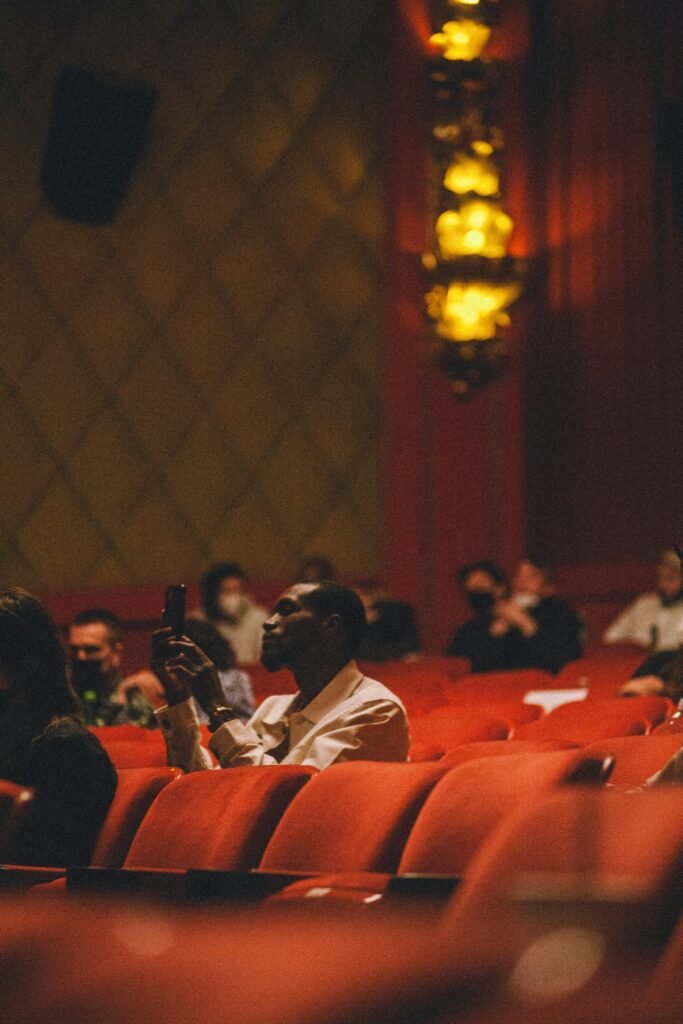
Your Audience Doesn’t Believe in Grown‑Ups Anymore
Look at the timeline your viewers live in:
- Names tied to Epstein.
- Names tied to trafficking.
- Names tied to abuse, exploitation, coverups.
- Carefully worded statements, high‑priced lawyers, and “no admission of wrongdoing.”
And in between all of that: playlists, memes, awards shows, campaign ads, and glossy biopics about “legends” we now know were monsters to someone.
If you’re under 35, this is your normal. You grew up:
- Watching childhood heroes get exposed one after another.
- Hearing “open secrets” whispered for years before anyone with power pretended to care.
- Seeing survivors discredited, then quietly vindicated when it was too late to matter.
So when the next leak drops and another “icon” is implicated, the shock isn’t that it happened. The shock is how little changes.
This is the psychic landscape your work drops into. People aren’t just asking, “Is this movie good?” They’re asking, often subconsciously: “Does this filmmaker understand the world I’m actually living in, or are they still selling me the old fantasy?”
You’re Not Just Telling Stories. You’re Translating a Crisis of Trust.
You may not want the job, but you have it: you’re a translator in a time when language itself feels rigged.
Politicians put out statements. Corporations put out statements. Studios put out statements. The public has learned to hear those as legal strategies, not moral positions.
You, on the other hand, still have this small window of trust. Not blind trust—your audience is too skeptical for that—but curious trust. They’ll give you 90 minutes, maybe a season, to see if you can make sense of what they’re feeling:
- The rage at systems that protect predators.
- The confusion when people they admired turn out to be complicit.
- The dread that this is all so big, so entrenched, that nothing they do matters.
If your work dodges that, it doesn’t just feel “light.” It feels dishonest.
That doesn’t mean every film has to be a trafficking exposé. It means even your “small” stories are now taking place in a world where institutions have failed in ways we can’t unsee. If you pretend otherwise, the audience can feel the lie in the walls.
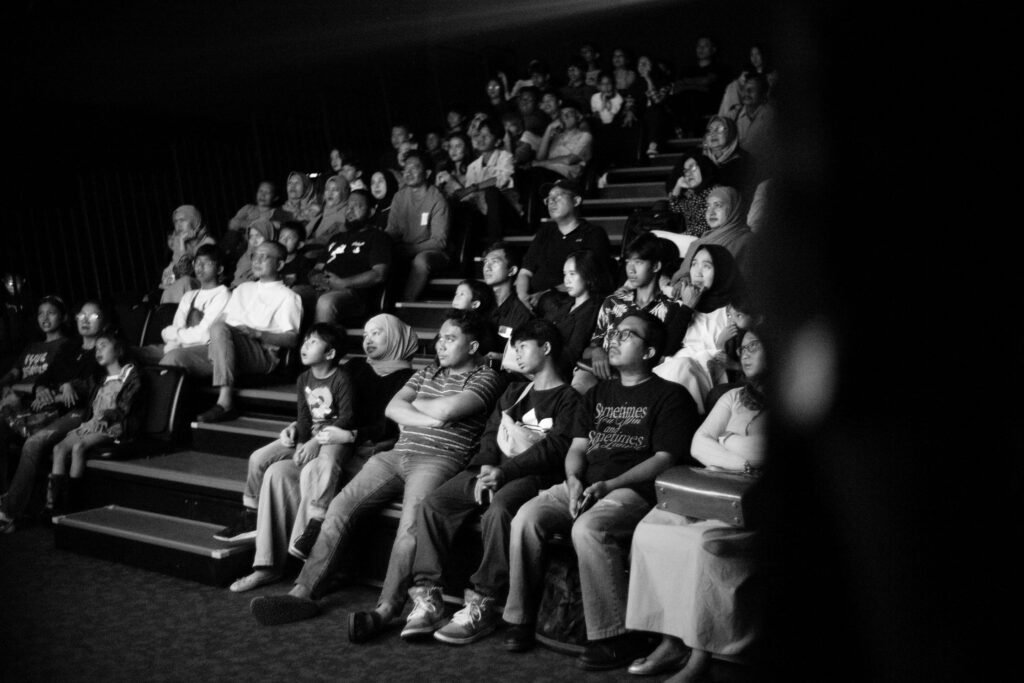
Numbness Is the Real Villain You’re Up Against
You asked for something that could inspire movement and change. To do that, you have to understand the enemy that’s closest to home:
It’s not only the billionaire on the jet. It’s numbness.
Numbness is what happens when your nervous system has been hit with too much horror and too little justice. It looks like apathy, but it’s not. It’s self‑defense. It says:
- “If I let myself feel this, I’ll break.”
- “If I care again and nothing changes, I’ll lose my mind.”
- “If everyone at the top is corrupt, why should I bother being good?”
When you entertain without acknowledging this, you help people stay comfortably numb. When you only horrify without hope, you push them deeper into it.
Your job is more dangerous and more sacred than that. Your job is to take numbness seriously—and then pierce it.
How?
- By creating characters who feel exactly what your audience feels: overwhelmed, angry, hopeless.
- By letting those characters try anyway—in flawed, realistic, human ways.
- By refusing to end every story with “the system wins, nothing matters,” even if you can’t promise a clean victory.
Movement doesn’t start because everyone suddenly believes they can win. It starts because enough people decide they’d rather lose fighting than win asleep.
Show that decision.
Don’t Just Expose Monsters. Expose Mechanisms.
If you make work that brushes against Epstein‑type themes, avoid the easiest trap: turning it into a “one bad guy” tale.
The real horror isn’t one predator. It’s how many people, institutions, and incentives it takes to keep a predator powerful.
If you want your work to fuel real change:
- Show the assistants and staffers who notice something is off and choose silence—or risk.
- Show the PR teams whose entire job is to wash blood off brands.
- Show the industry rituals—the invite‑only parties, the “you’re one of us now” moments—where complicity becomes a form of currency.
- Show the fans, watching allegations pile up against someone who shaped their childhood, and the war inside them between denial and conscience.
When you map the mechanism, you give people a way to see where they fit in that machine. You also help them imagine where it can be broken.
Your Camera Is a Weapon. Choose a Target.
In a moment like this, neutrality is a story choice—and the audience knows it.
Ask yourself, project by project:
- Who gets humanized? If you give more depth to the abuser than the abused, that says something.
- Who gets the last word? Is it the lawyer’s statement, the spin doctor, the jaded bystander—or the person who was actually harmed?
- What gets framed as inevitable? Corruption? Cowardice? Or courage?
You don’t have to sermonize. But you do have to choose. If your work shrugs and says, “That’s just how it is,” don’t be surprised when it lands like anesthetic instead of ignition.
Ignition doesn’t require a happy ending. It just requires a crack—a moment where someone unexpected refuses to play along. A survivor who won’t recant. A worker who refuses the payout. A friend who believes the kid the first time.
Those tiny acts are how movements start in real life. Put them on screen like they matter, because they do.
Stop Waiting for Permission
A lot of people in your position are still quietly waiting—for a greenlight, for a grant, for a “better time,” for the industry to decide it’s ready for harsher truths.
Here’s the harshest truth of all: the system you’re waiting on is the same one your audience doesn’t trust.
So maybe the movement doesn’t start with the perfectly packaged, studio‑approved, four‑quadrant expose. Maybe it starts with:
- A microbudget feature that refuses to flatter power.
- A doc shot on borrowed gear that traces one tiny piece of the web with obsessive honesty.
- A series of shorts that make it emotionally impossible to look at “open secrets” as jokes anymore.
- A narrative film that never names Epstein once, but makes the logic that created him impossible to unsee.
If you do your job right, people will leave your work not just “informed,” but uncomfortable with their own passivity—and with a clearer sense of where their own leverage actually lives.

The Movement You Can Actually Spark
You are not going to single‑handedly dismantle trafficking, corruption, or elite impunity with one film. That’s not your job.
Your job is to help people:
- Feel again where they’ve gone numb.
- Name clearly what they’ve only sensed in fragments.
- See themselves not as background extras in someone else’s empire, but as moral agents with choices that matter.
If your film makes one survivor feel seen instead of crazy, that’s movement.
If it makes one young viewer question why they still worship a predator, that’s movement.
If it makes one industry person think twice before staying silent, that’s movement.
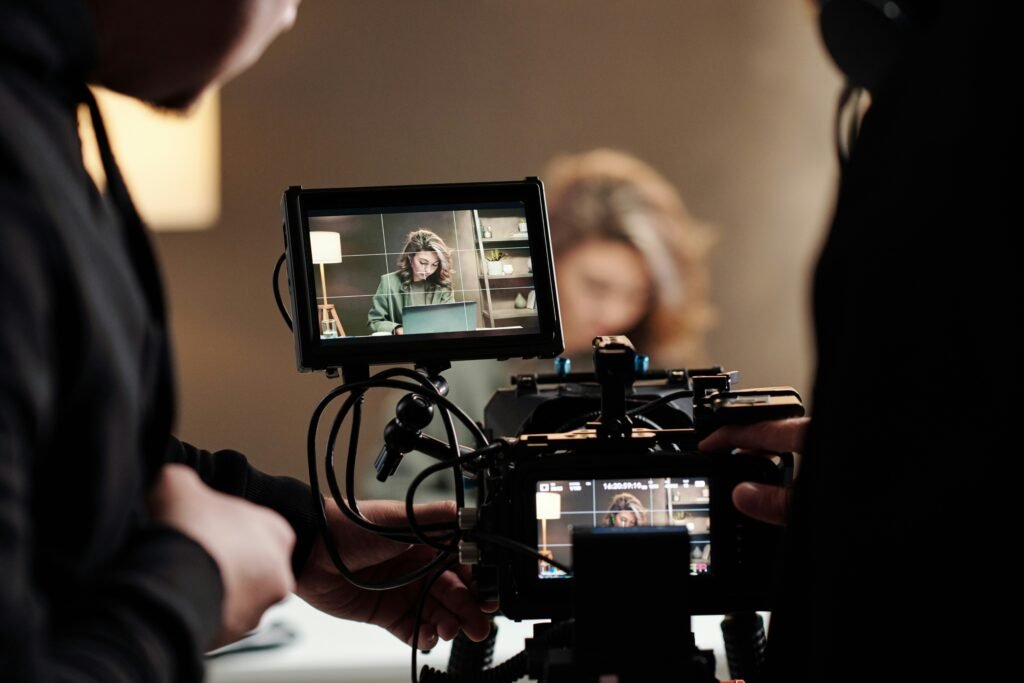
And movements, despite what the history montages pretend, are not made of big moments. They’re made of a million small, private decisions to stop lying—to others, and to ourselves.
You wanted to make movies, not decode Epstein.
Too late.
You’re here. The curtain’s already been pulled back. Use your camera to decide what we look at now: more distraction from what we know, or a clearer view of it.
One of those choices helps people forget.
The other might just help them remember who they are—and what they refuse to tolerate—long enough to do something about it.

 Entertainment2 weeks ago
Entertainment2 weeks agoWhat the Epstein Files Actually Say About Jay-Z

 Film Industry3 weeks ago
Film Industry3 weeks agoTurning One Short Film into 12 Months of Content

 Film Industry3 weeks ago
Film Industry3 weeks ago10 Ways Filmmakers Are Building Careers Without Waiting for Distributors

 Film Industry2 weeks ago
Film Industry2 weeks agoAI Didn’t Steal Your Job. It Revealed Who Actually Does the Work.

 Film Industry3 weeks ago
Film Industry3 weeks agoHow to Write a Logline That Makes Programmers Hit Play

 News2 weeks ago
News2 weeks agoCatherine O’Hara: The Comedy Genius Who Taught Us That Character Is Everything

 Entertainment2 weeks ago
Entertainment2 weeks agoYou wanted to make movies, not decode Epstein. Too late.

 Entertainment1 week ago
Entertainment1 week agoWhat Epstein’s Guest Lists Mean for Working Filmmakers: Who Do You Stand Next To?






























